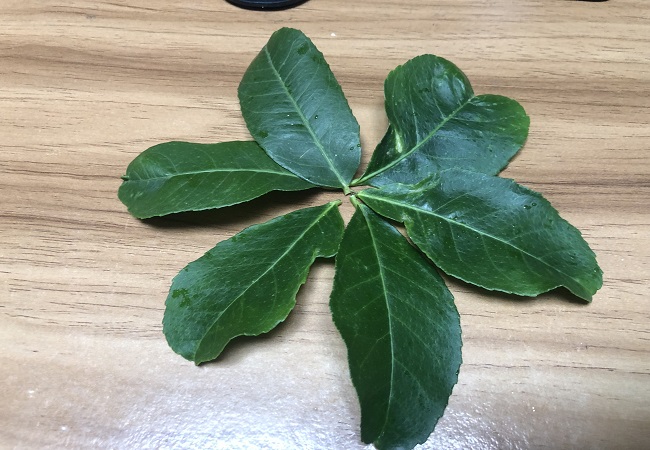Guinea pigs are beloved pets known for their adorable appearance and gentle nature. As responsible owners, we strive to provide them with a balanced and nutritious diet to support their overall health and well-being. When it comes to exploring suitable food options, questions may arise about the safety and suitability of certain foods, such as lemon leaves.
In this article, we will delve into the question, Can guinea pigs eat lemon leaves? and examine the potential implications of incorporating lemon leaves into a guinea pig’s diet.
Guinea pigs, with their endearing personalities and gentle disposition, have become popular companions for many pet enthusiasts. As conscientious owners, we continuously seek ways to optimize the health and happiness of our furry friends, which includes providing them with a nutritious and well-rounded diet.
However, when it comes to introducing new foods, it is essential to exercise caution and ensure that they are safe for our guinea pigs to consume.
In this article, I will explore the topic in depth, examining the potential benefits and risks associated with incorporating lemon leaves into the diet of our beloved guinea pigs.
By gaining a better understanding of the nutritional implications, we can make informed decisions regarding our pets’ dietary choices, ultimately promoting their overall well-being.
Contents
- Can Guinea Pigs Eat Lemon Leaves: An Experiment in Healthy Diet Exploration
- Potential Benefits of Eating Lemon Leaves For Guinea Pigs
- Potential Risks of Eating Lemon Leaves For Guinea Pigs
- Are Lemon Trees Toxic to Guinea Pigs?
- More Experiment From (AboutGuineapigs.Com)
- Frequently Asked Questions
- My Final Opinion
Can Guinea Pigs Eat Lemon Leaves: An Experiment in Healthy Diet Exploration
As a dedicated guinea pig owner, it is essential to ensure that your pets have a well-balanced and nutritious diet. Guinea pigs require specific nutrients, such as Vitamin C, to maintain their overall health.
In this experiment, the focus is on investigating whether lemon leaves can be safely incorporated into a guinea pig’s diet.
The experiment examines the guinea pigs’ response to the introduction of lemon leaves, the potential benefits, any associated risks, and a discussion of the findings.
Experiment:
To determine whether guinea pigs can eat lemon leaves and their response to this food, an experiment was conducted using two guinea pigs named Max and Maya.

A total of 3 grams of lemon leaves were offered to the guinea pigs. Lemon leaves were chosen due to their potential health benefits, including a rich source of Vitamin C and possible positive impact on gastrointestinal health.
Results:
During the experiment, Max and Maya were observed to interact with the lemon leaves. Initially, they exhibited a natural curiosity, investigating the scent of the leaves before proceeding to consume them.
Max and Maya consumed approximately 1 gram of lemon leaves, while 2 grams remained uneaten.
This indicates that the guinea pigs consumed approximately 33% of the lemon leaves provided. You can get a clear idea about this if you see my video. This video was shoot while they eating lemon leaves.
Lemon Leaves Consumed Report:
|
Descriptions |
Amounts To Eat (Max & Maya) |
|
Was Given To Eat |
3 Grams |
|
They Ate |
1 Grams |
|
Percent Ate (%) |
33% |
|
Remains |
2 Grams |
Discussion:
The results of the experiment suggest that guinea pigs can indeed eat lemon leaves. Lemon leaves are known to contain Vitamin C, a vital nutrient for guinea pigs, supporting their overall health and preventing scurvy.
Additionally, the experiment indicates that guinea pigs may find lemon leaves palatable, as Max and Maya willingly consumed a portion of the leaves provided.
It is important to note that lemon leaves should be given to guinea pigs in moderation, as part of a balanced diet. While they contain beneficial nutrients, excessive consumption could potentially lead to digestive issues.
The fact that Max and Maya consumed only a portion of the lemon leaves suggests that they may have found the taste or texture less appealing compared to their regular diet.
While this experiment provides valuable insights, it is essential to consider individual guinea pig’s unique preferences and dietary needs. Each guinea pig’s tolerance and reaction to lemon leaves may vary, and it is crucial to monitor their response and consult with a veterinarian if any concerns arise.
Potential Benefits of Eating Lemon Leaves For Guinea Pigs
Lemon leaves offer potential benefits for guinea pigs when incorporated into their diet in moderation. Here are some of the potential benefits:
Vitamin C Source:
Lemon leaves are known to be rich in Vitamin C, which is an essential nutrient for guinea pigs. Unlike humans and some other animals, guinea pigs cannot synthesize Vitamin C on their own. Thus, they rely on their diet to obtain this crucial vitamin.
Vitamin C plays a vital role in maintaining the guinea pig’s overall health, supporting their immune system, and preventing scurvy a condition that can cause weakness, joint pain, and other health issues in guinea pigs. Incorporating lemon leaves into their diet can help provide a natural source of this essential nutrient.
Gastrointestinal Health:
Lemon leaves contain certain compounds that may contribute to improved gastrointestinal health in guinea pigs. These compounds can help regulate digestion, promote healthy gut flora, and aid in nutrient absorption.
By supporting a healthy digestive system, lemon leaves may help prevent digestive issues such as bloating, diarrhea, and constipation in guinea pigs.
Enrichment and Stimulation:
Introducing lemon leaves as part of the guinea pigs’ diet can provide sensory enrichment and stimulation. The scent, taste, and texture of lemon leaves can offer a new and exciting experience for guinea pigs, contributing to their mental well-being.
Offering a varied diet, including different types of safe and appropriate foods, can help prevent boredom and encourage natural foraging behaviors in guinea pigs.
Natural Treat Option:
Lemon leaves can serve as a healthy treat option for guinea pigs. While treats should be given sparingly, using lemon leaves as an occasional reward or as part of a rotational treat system can add variety to their diet. This can be especially useful during training sessions or when you want to bond with your guinea pigs through positive reinforcement.
Antioxidant Properties:
Lemon leaves contain antioxidants, which can help neutralize harmful free radicals in the guinea pigs’ bodies. Antioxidants play a role in reducing oxidative stress and inflammation, potentially contributing to improved overall health and longevity.
Note: It is important to remember that while lemon leaves offer potential benefits, they should only be given to guinea pigs in small quantities. Care should be taken to ensure that lemon leaves are fresh, free from pesticides or other harmful substances, and introduced gradually into their diet to monitor individual guinea pigs’ response.
Potential Risks of Eating Lemon Leaves For Guinea Pigs
While lemon leaves can offer potential benefits to guinea pigs, it is important to be aware of the potential risks associated with their consumption.

Here are some potential risks to consider:
Oxalates:
Lemon leaves, like many leafy greens, contain oxalates. Oxalates are natural compounds found in certain plants that can bind with calcium and form crystals.
In high amounts, oxalates can potentially contribute to the formation of urinary tract stones or calcium oxalate bladder stones in guinea pigs. Therefore, it is important to offer lemon leaves in moderation to minimize the risk of excessive oxalate intake.
Digestive Issues:
Guinea pigs have sensitive digestive systems, and introducing new foods can sometimes lead to digestive upset. Lemon leaves contain plant fibers that may be difficult for some guinea pigs to digest, especially if they are not accustomed to a high-fiber diet.
Consuming excessive amounts of lemon leaves can potentially lead to gastrointestinal discomfort, gas, bloating, or diarrhea. It is crucial to introduce lemon leaves gradually and monitor your guinea pigs’ response to ensure they tolerate them well.
Pesticide Contamination:
Lemon leaves, like any other plant material, can be exposed to pesticides or other chemicals. If you are using commercially grown lemon leaves or those from non-organic sources, there is a risk of pesticide residue.
Pesticides can be harmful to guinea pigs and may pose a health risk if ingested. It is advisable to use organic lemon leaves or thoroughly wash and clean non-organic leaves to minimize exposure to pesticides.
Allergic Reactions:
While rare, some guinea pigs may have individual sensitivities or allergies to certain plants or plant compounds, including lemon leaves. Signs of an allergic reaction may include itching, swelling, respiratory distress, or gastrointestinal disturbances.
If you notice any abnormal symptoms or behaviors after introducing lemon leaves, it is important to discontinue their consumption and seek veterinary advice.
Variation in Palatability:
Guinea pigs have their own unique preferences when it comes to food. While some guinea pigs may readily consume lemon leaves, others may find them less appealing or may not show interest at all.
It is important to respect individual preferences and not force guinea pigs to consume foods they do not enjoy. If your guinea pig shows little interest in lemon leaves, it is best to offer a diverse range of other suitable vegetables and greens to ensure a balanced diet.
Note: To minimize risks, it is always recommended to consult with a veterinarian before introducing any new foods into your guinea pigs’ diet. They can provide specific guidance based on your guinea pigs’ health, dietary needs, and individual requirements.
Are Lemon Trees Toxic to Guinea Pigs?
Yes, lemon trees, including the leaves, fruit, and other parts, can be toxic to guinea pigs. Lemon trees contain various compounds, such as essential oils and psoralens, which can be harmful to small animals like guinea pigs. These substances can cause irritation, digestive issues, and even toxicity if ingested in large amounts.
The leaves of lemon trees, in particular, contain higher concentrations of essential oils and psoralens, making them potentially more toxic than the fruit. Ingesting lemon tree leaves can lead to gastrointestinal upset, including stomach pain, diarrhea, or vomiting in guinea pigs.
It is crucial to ensure that guinea pigs do not have access to lemon trees or any part of the tree, including the leaves, branches, or fruits. If you have a lemon tree in your yard or surroundings, it is important to prevent your guinea pigs from coming into contact with it to avoid any potential health risks.
As always, if you suspect that your guinea pig has ingested any part of a lemon tree or is showing signs of illness, it is essential to consult with a veterinarian immediately for appropriate guidance and treatment.
More Experiment From (AboutGuineapigs.Com)
I have already done many other experiments on the below topics. If you want to know more then you can read this useful information.
- Can Guinea Pigs Eat Lemon Peels?
- Can Guinea Pigs Eat Potato Peels?
- Can Guinea Pigs Eat Mango Skin?
- Can Guinea Pigs Eat Pineapple Leaves?
Frequently Asked Questions
Q: Are lemon leaves safe for guinea pigs?
A: Lemon leaves can be safely consumed by guinea pigs in small quantities. They contain beneficial nutrients, including Vitamin C, and can provide sensory enrichment for guinea pigs. However, it’s important to offer lemon leaves in moderation and monitor your guinea pigs for any adverse reactions.
Excessive consumption of lemon leaves may lead to digestive issues, and it’s essential to ensure the leaves are fresh and free from pesticides. Consulting with a veterinarian is always recommended for personalized dietary advice for your guinea pigs.
Q: Can I feed lemon leaves to guinea pigs?
A: Yes, you can feed lemon leaves to guinea pigs in small quantities. Lemon leaves contain beneficial nutrients, including Vitamin C, and can be a healthy addition to their diet. However, it is important to introduce them gradually and monitor your guinea pigs for any adverse reactions.
Ensure that the lemon leaves are fresh, organic, and free from pesticides. Consulting with a veterinarian is always recommended for specific dietary guidance tailored to your guinea pigs’ needs.
Q: Why can’t guinea pigs eat lemon leaves?
A: Guinea pigs cannot eat lemon leaves because they contain compounds that can be harmful to them. Lemon leaves contain essential oils and psoralens, which can cause digestive issues, irritation, and even toxicity in guinea pigs.
It is important to prioritize the safety and well-being of your guinea pigs by avoiding feeding them lemon leaves or any other potentially harmful substances.
My Final Opinion
Guinea pigs can safely consume lemon leaves in moderation as a healthy treat. Lemon leaves are a source of Vitamin C, which supports the guinea pig’s overall well-being. However, it is important to note that lemon leaves should be introduced gradually, and individual guinea pigs’ responses should be closely monitored.
Consulting with a veterinarian regarding the specific dietary requirements of guinea pigs is always recommended to ensure their optimal health and well-being. Through experimentation and careful observation, guinea pig owners can make informed decisions about their pet’s diet, promoting their long and happy lives.
Useful Links: About Lemon Leaves, Eating Orange and Lemon Leaves










